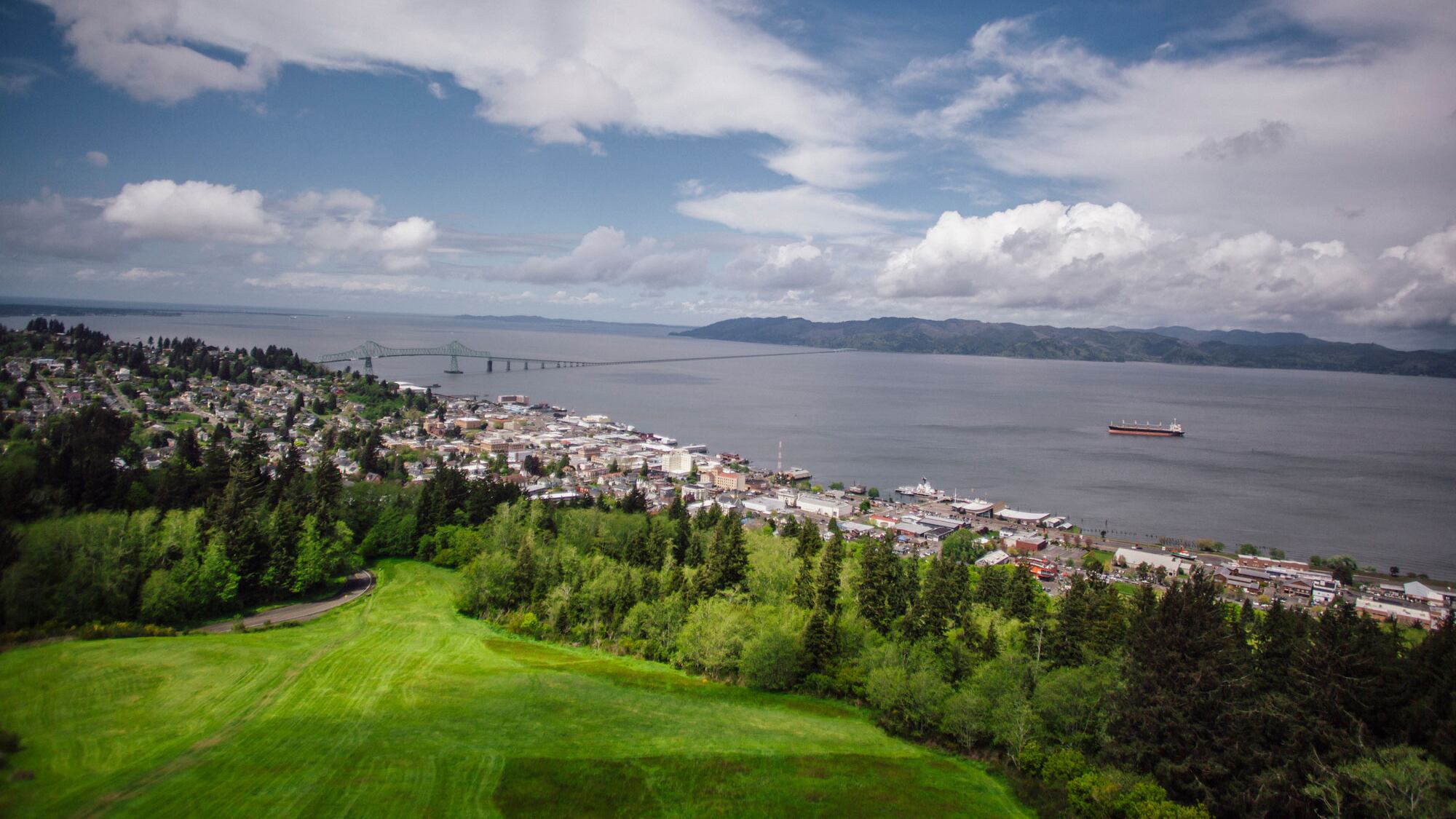Frank Manning helps run Diversified Marine, a shipyard in North Portland that repairs tugboats and barges. He might raise his voice at the May 12 meeting of the Oregon Transportation Commission.
Manning wants to block the state’s plan to grant a massive subsidy to a competing shipyard down the Columbia River that has already scored big government subsidies.
The Oregon Department of Transportation is unfairly picking winners and creating losers, Manning says.
“There’s no net benefit to the state here,” he adds.
On May 12, the OTC will dole out $46 million for nonhighway projects, including $14 million to Hyak Tongue Point, a new shipyard in Astoria.
Hyak, a venture owned by shipping magnates Bob Dorn and Gordon Smith (not to be confused with the former U.S. senator), bought North Tongue Point in 2017. Officials then gave the project a five-year property tax break and included it in an Oregon opportunity zone, which could mean no capital gains taxes when the property sells. Hyak then landed $7 million in American Rescue Plan Act funds and $350,000 from the governor’s strategic reserve, and will benefit from a $9 million dredging project by the U.S. Army Corps of Engineers.
Manning is raising a stink and says Oregonians should care because ODOT is shirking its responsibility to invest scarce resources in projects that will create new jobs, not cannibalize existing ones.
Here are the objections of Diversified and JT Marine, another affected shipyard, and ODOT spokesman Don Hamilton’s responses.
1. Claim: Hyak’s estimate of the size of the market is wrong.
Manning and JT Marine owner Timo Toristoja say Hyak’s application to ODOT overestimates the potential market. They say they collectively did $16 million in business last year. Hyak says it can do $32 million by itself.
ODOT response: “The Connect Oregon process does not require a formal economic report,” Hamilton says. “The application only requires the applicant to describe the economic benefits to the state. In the case of the Hyak project, the project applicant chose to prepare an economic report, but it was not submitted as part of the application it was received later and therefore was not considered in the state’s economic review.”
2. Claim: ODOT’s investment would harm existing yards without creating new jobs.
Manning says the grant would allow Hyak to crush Diversified and JT Marine, another upriver operator in Rainier, Ore., and Vancouver, Wash.
The $14 million subsidy is nearly as much as Diversified and JT collectively grossed in their shipyards last year, Manning says.
ODOT response: “There is not a formal process to evaluate each application about the potential impacts the project may or may not have,” Hamilton says. “The application as well as comments through various committees and even from the public hearing have acknowledged that a significant number of shipyards in Oregon and along the West Coast have shut down in recent years, meaning there are less locations today who can do this type of work. The application materials and many reviewers believed that this would mean a strong potential for a market that is underserved.”
3. Claim: The investors are from elsewhere and will buy foreign machinery.
Manning notes that Hyak, which is registered in Delaware, plans to purchase a $10 million ship-lifting device made by an Italian company that has extensive joint operations with a major Russian firm. “They could at least buy American,” Manning says.
ODOT response: “There is no requirement that applicants be from the state of Oregon,” Hamilton says. “Often, specialty equipment, materials and operational systems like software are produced in other countries. In this case, the applicant has stated this is the only manufacturer that meets their specified design and operational criteria, and ODOT can only take the applicants’ information on face value.”

